Planned Expansion of Greenpoint Energy Center Brings Concerned Neighbors Out in Protest
Neighbors rallied on Sunday against National Grid’s plan to expand their natural gas plant in Greenpoint, which comes as the energy company awaits a decision on their final permits.

Photo by Ken Schles
Neighbors rallied on Sunday against National Grid’s plan to expand their natural gas plant in Greenpoint, which comes as the energy company awaits a decision on their final permits.
National Grid is seeking to build two new liquified natural gas (LNG) vaporizers at the Greenpoint Energy Center on Maspeth Avenue — currently the home to older vaporizers that the company says are less efficient.
According to the project’s website, the vaporizers liquify and store gas not being used during off-peak times — namely, the warmer months of the year. When temperatures drop and customers crank their gas heaters, the vaporizers turn their stored gas back into a vapor and send it back into the system.
The vaporizers only operate on those coldest days of the year; according to National Grid, the existing vaporizers ran for two days during each of the last two winters, and, in the last five years, have operated at most 14 days, during the winter of 2017-18.
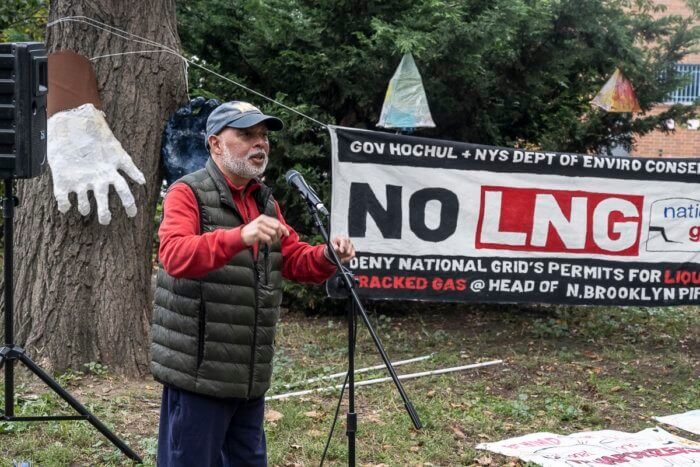
Photo by Ken Schles
Infrequent operations haven’t comforted some of the facility’s neighbors, who worry about the environmental and health risks the new vaporizers will have on their homes and bodies, especially when coupled with the Metropolitan Natural Gas Reliability Project, colloquially known as North Brooklyn Pipeline.
At the heart of the community’s concern is the facility’s proximity to the Cooper Park Houses, a New York City Housing Authority complex.
“We’ve been fighting against pollution for 60 years,” said Elisha Fye, the complex’s vice president, at Sunday’s rally. “Now we have this new vaporizer trying to come up back here. They’re piping it in underground, this is dirty gas, they got to liquify it and then they got to put it back into gas, all on our account which is going to harm us! And then they’re going to raise the prices for your gas, you’re paying for this mess!”
Earlier this year, the state’s Public Service Commission approved a rate hike, which will increase bills for customers in Brooklyn, Queens, and Staten Island by about $66 annually.
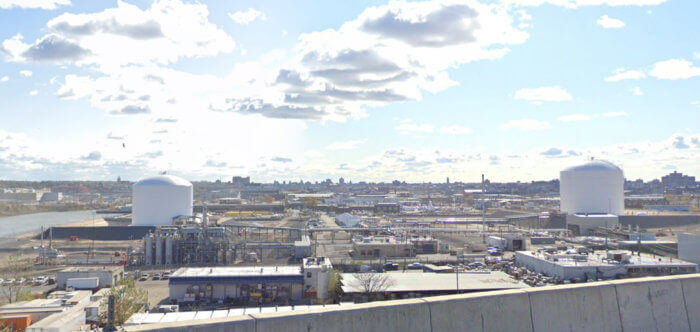
The hike was requested in part to help pay for National Grid’s projects in the downstate region, including the LNG expansion and the pipeline, though the commission ruled that they cannot use the increased revenue to pay for pipeline costs.
The No North Brooklyn pipeline coalition has launched a bill strike against the company, encouraging neighbors to hold back money from their monthly payments.
Katherine Thompson, co-chair of Friends of Bushwick Inlet Park, said she worried her daughter has developed health issues as a result of being raised near the facility.
“I have a daughter who has an autoimmune disorder and endocrine disorder, and I just wonder if it’s because I raised her here in Greenpoint,” she said at the rally. “I think that if we can fight this pipeline, if we can stop these LNG vaporizers, then we are really making headway against corporate greed. If they can invest in this, why can’t they invest in geothermal, solar, and wind?”
The rally was held days after National Grid held an online public information session about the LNG expansion, part of their mandated public outreach process.
The Sane Energy Project, who have led the charge against the North Brooklyn Pipeline, released a list of questions they wanted National Grid to answer at the session, claiming that National Grid has evaded questions and “outright lied,” at past meetings.
Lee Ziesche, community engagement coordinator with the Sane Energy Project, told Brooklyn Paper ahead of the meeting that she hoped National Grid would answer the questions, and hopes that the state’s Department of Environmental Conservation would deny the permits in the end. The federal Environmental Protection Agency announced yesterday that they will be investigating the DEC’s proclamation that the LNG expansion “will not have a significant impact on the environment.” The investigation was launched after community groups filed a civil rights complaint in August.
At the virtual session, a National Grid representative said he was “unaware” of the questions, which had been sent by email, but would be happy to review them and respond in full by Nov. 5, the required deadline set by the PSC.
DEC is currently reviewing National Grid’s application for an Air State Facility permit, which, if granted, replace the facility’s existing Title V permit. Title V permits require facilities to keep a public record of their emissions, certify their emissions each year, among other requirements. According to the DEC website, the terms of Title V permits are federally enforceable.
The air permits are given to facilities with annual emissions “less than half of the level that would make them a major source,” and which do not need to be bound by the conditions of a permit to keep their emissions levels below levels that would require state or federal monitoring.
On Oct. 27, DEC denied Title V permits for two proposed gas plants — one in Newburgh, New York, and one in Astoria. The department said neither project complied with the CLCPA, and that both had “failed to demonstrate the need or justification.”
In a tweet, No North Brooklyn Pipeline celebrated the decision, and called it a “good sign in our fight against the vaporizers.”
“The permit process includes a review under the Climate Leadership and Community Protection Act,” said Chris Connelly, vice president of gas network operations, at the public session. “The CLCPA directs state agencies to determine if their decisions are consistent with statewide greenhouse gas emission limits.”
According to Connelly, the CLCPA review says the new, more efficient vaporizers would bring the facility’s total NOx emissions down by more than 22 tons annually as the older vaporizers are taken out of use. A report released by National Grid last year said the short-term environmental impact would be “moderate” to the surrounding area.
The DEC is currently reviewing the CLCPA analysis National Grid has provided, a spokesperson told Brooklyn Paper, and the document includes mitigation measures the company would take to reduce the impact of emissions on neighboring communities.
In response to a question asked by Margot Spindleman, an activist with No North Brooklyn Pipeline who attended the event, National Grid representative Bryan Grimaldi said the CLCPA analysis will be available online once DEC has finished reviewing it.
Connelly emphasized that the new vaporizers would not increase the capacity of LNG storage at the Greenpoint facility, and that the company has scrapped earlier plans of trucking LNG in and out of the facility.
In addition to being more efficient, Connelly said the vaporizers are necessary for National Grid to meet demand on the system in coming years.
“Absent of the LNG vaporizers, a significant number of New York City customers could be at risk of losing heating when they need it most,” he said. “Those gas outages may persist for an extended duration until pressure is restored in the system.”
In 2019, National Grid refused to provide new gas hookups for new and existing customers for months after the state decided not to allow construction of the Williams pipeline, claiming the pipeline was necessary to keep up with demand in New York City. The company restarted hookups after Cuomo threatened to rescind their license.
In May 2020, the company released a “Long-Term Supplemental Capacity Report,” which outlined their plans for keeping up with demand without the pipeline — including building the two new vaporizers.
Connelly said the vaporizers are needed even as the company aims to move toward greener energy, and that the company uses past data to project demand in coming years, and that the projected lifespan of the vaporizers is at least 20 years.
“It’s important to highlight that the need to vaporize the stored LNG at the Greenpoint facility is driven by weather,” Connelly said. “In recent years we have had warmer than normal winters, but we do have a requirement to design our system to meet demand at 0 degrees Fahrenheit.”
While the city has not hit that low in “a number of years,” he said, they must be able to supply the hypothetical demand.
In a statement, the Sane Energy Project said they expected DEC to make a decision on the facility’s permits in early November. In the capacity report, National Grid said the vaporizers could have been operational within a year and a half of the report’s publication, but have not yet confirmed the potential construction timeline with Brooklyn Paper.
Editor’s note: A version of this story originally ran in Brooklyn Paper. Click here to see the original story.
Related Stories
- Activists File Lawsuit to Halt Construction of National Grid Natural Gas Facility in Greenpoint
- Design Phase Nears Halfway Mark on Red Hook Coastal Resiliency Project
- Locals Fear Health Risks After Suspected Oil Spill During Construction of Coney Island Ferry Landing
Email tips@brownstoner.com with further comments, questions or tips. Follow Brownstoner on Twitter and Instagram, and like us on Facebook.

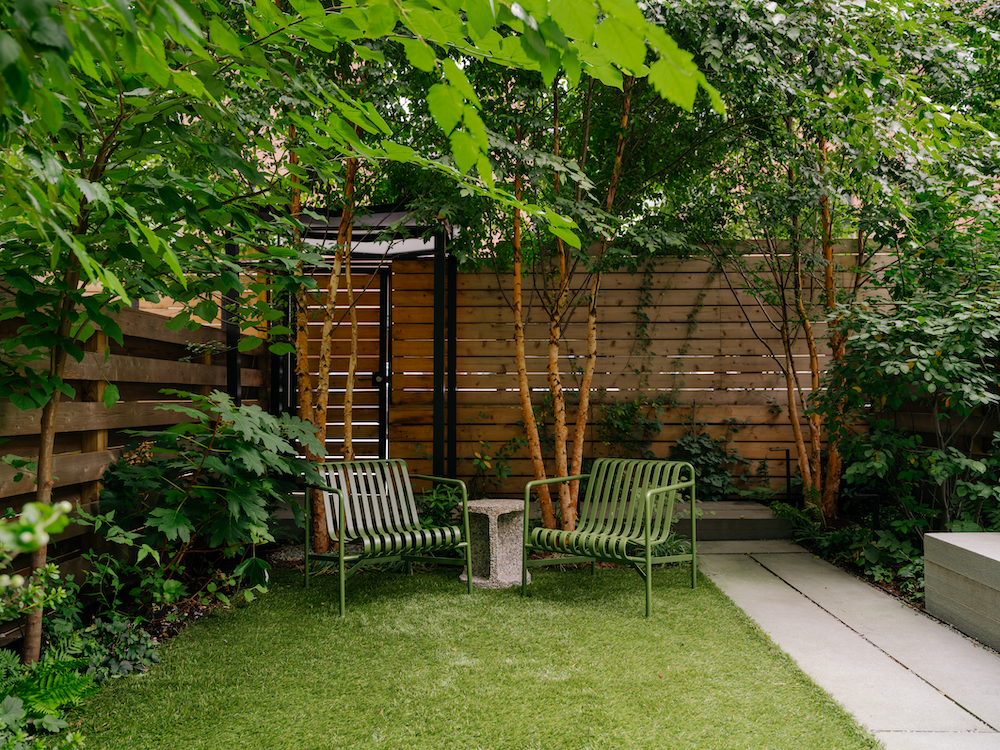
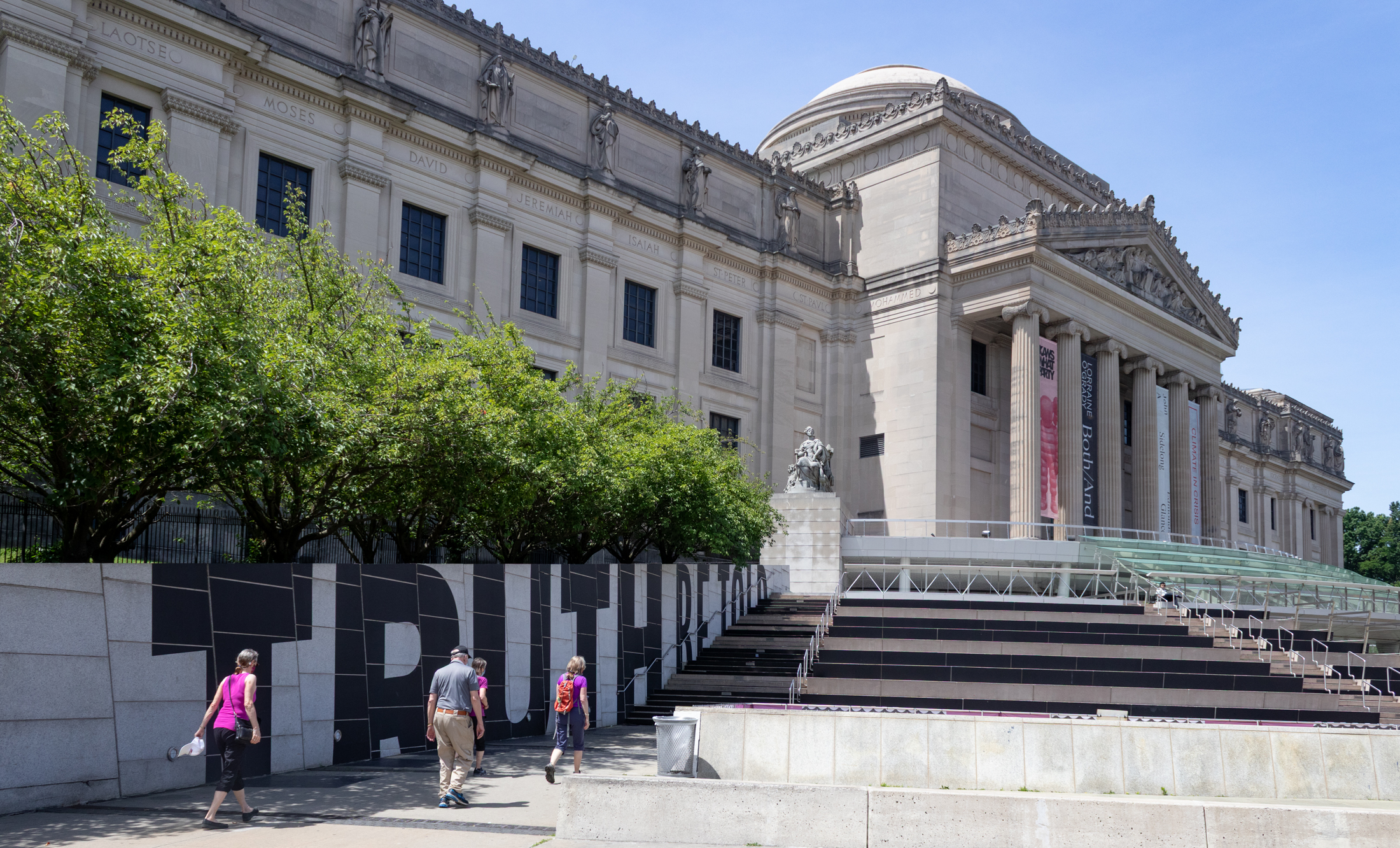
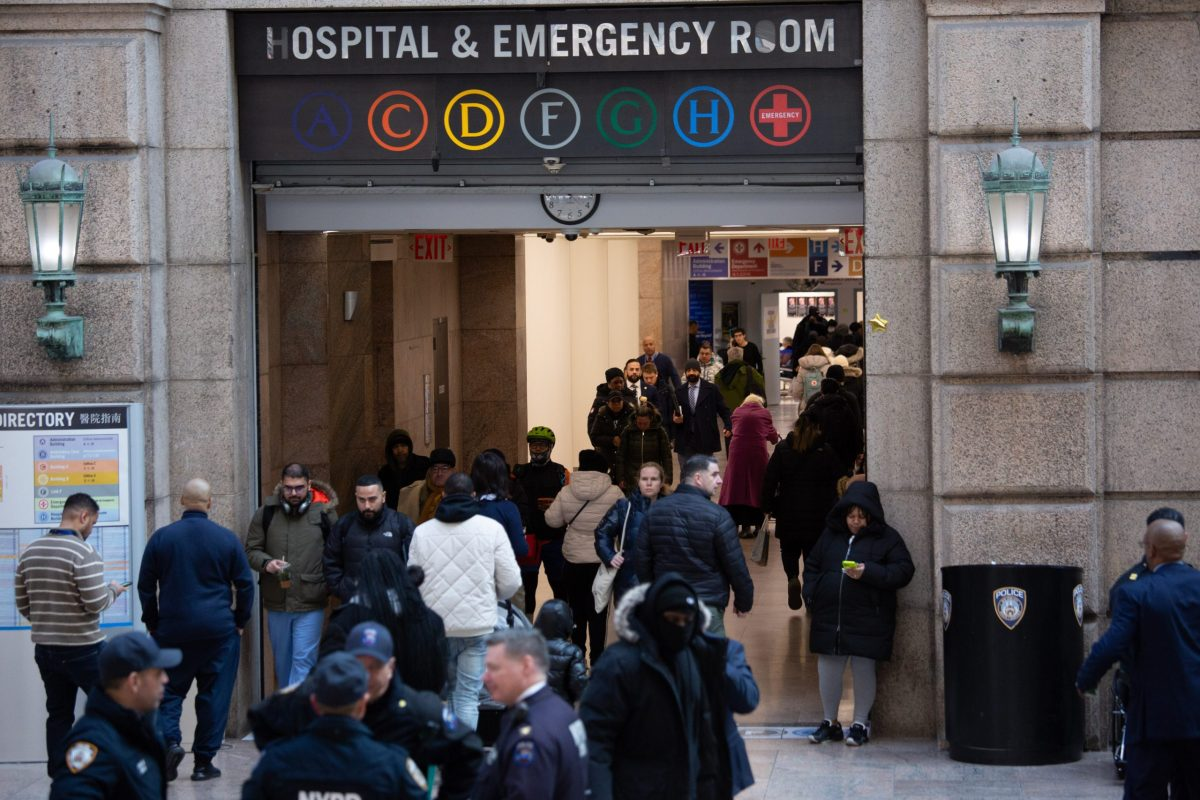





What's Your Take? Leave a Comment